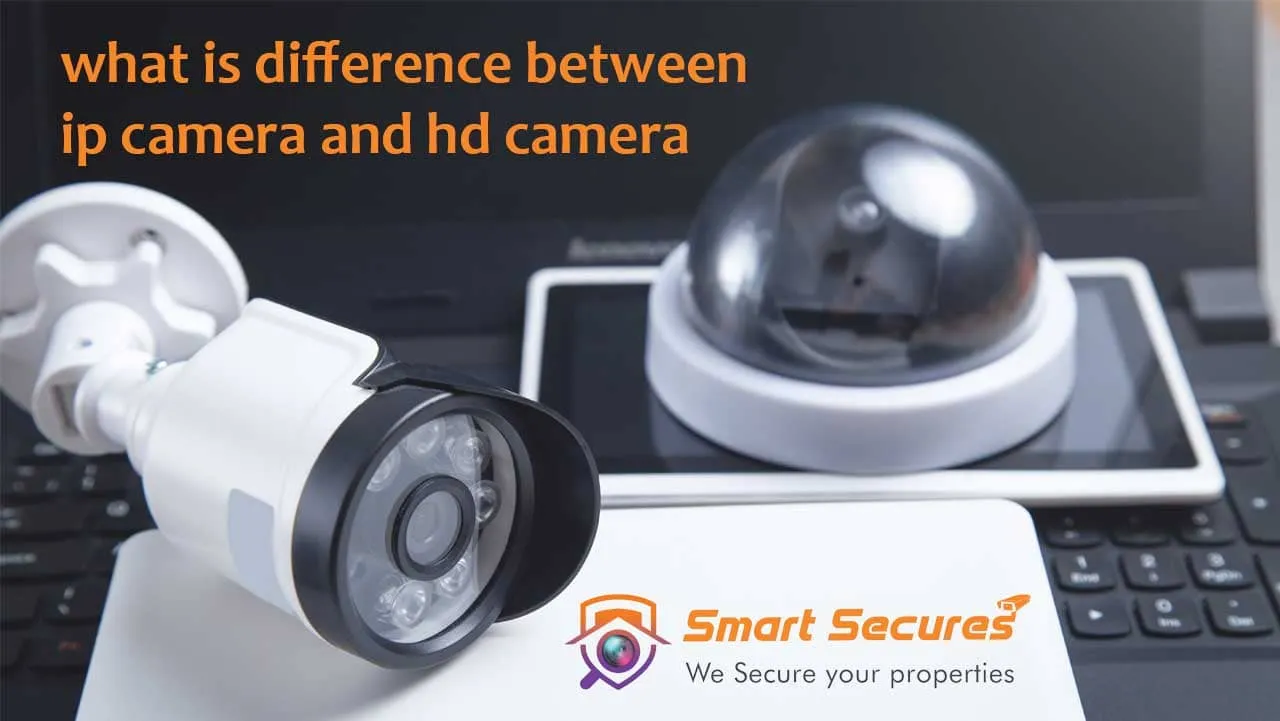Home > Blog > Understanding the Key difference between ip camera and hd camera
In today’s fast-paced world, security is a top priority for businesses and industrial operations.

In today’s fast-paced world, security is a top priority for businesses and industrial operations. Whether you run a corporate office, a large factory, or a commercial warehouse, a good surveillance system is important. It helps keep everyone safe and ensures everything runs smoothly.
With technology advancing rapidly, companies now face the challenge of choosing the difference between IP cameras and HD cameras. But what are the differences, and how can they affect your decision?
In this guide, we will explain the main features of IP and HD cameras. We will discuss how their video quality and resolution differ. This will help you choose the best option for your business or industrial security needs.
IP cameras (Internet Protocol cameras) are digital video cameras that transmit data via a network. Unlike traditional analog systems, IP cameras connect to the internet, allowing users to monitor footage remotely from any location. This makes them an excellent option for large businesses, industrial sites, and organizations with multiple locations.
HD cameras (high-definition cameras) are analog systems that offer better resolution compared to standard analog cameras. While they provide high-quality footage, they don’t utilize the same internet-based functionality as IP cameras. Many people often prefer HD cameras for small CCTV installations. This is especially true in places that don't need network systems.
IP cameras usually offer much better video quality than HD cameras. HD cameras can reach a maximum of 1080p, which is Full HD. In contrast, IP cameras can provide 4K resolution or even higher. This makes them great for large industrial sites where clear footage is important.
IP cameras are better for businesses that need high resolution. They help with checking inventory, capturing license plates, and monitoring different areas. For businesses that only need good-quality footage, HD cameras can be a good choice. They do not require an IP infrastructure.
The main difference between IP and HD cameras is their technology. IP cameras use a network to send footage over the internet. This allows for remote viewing and cloud storage. They can also connect with other digital systems like alarms and access control.
HD cameras are different because they are analog systems. They provide high-definition video but use physical cables to transmit data. This can make them less flexible in large and complex CCTV setups.
One of the biggest benefits of IP cameras for businesses is their scalability. As your business grows, you can easily add more cameras. This makes IP cameras great for companies that plan to expand or improve security over time.
With HD cameras, scalability is more limited. Adding more cameras needs complex wiring and infrastructure. This can raise costs and take more time to install.
When it comes to upfront costs, HD cameras are generally more affordable. Their CCTV camera installation services are simpler, especially for businesses that already have existing coaxial cabling in place. This makes them a cost-effective option for smaller businesses or those with basic security needs.
IP cameras may cost more at first, but they provide long-term benefits. These include lower CCTV maintenance service costs, easier upgrades, and advanced features that HD cameras might not have. For industrial operations that need a lot of monitoring, investing in IP cameras can be worth it. They offer great flexibility and performance.
Choosing between IP cameras and HD cameras depends on your business’s unique security needs, budget, and infrastructure. For large corporations and industrial sites requiring high-resolution video, scalability, and advanced features, IP cameras offer unmatched benefits. Meanwhile, HD cameras offer a budget-friendly option for small businesses. They are great for places where clear video and easy monitoring are enough.
You can choose IP cameras with advanced network features or HD cameras with clear high-definition footage. Both types of security cameras are important for protecting your business or industrial facility. By thinking about your specific needs, you can make a smart choice that improves security and protects your assets.
It depends on your specific requirements. IP cameras offer remote accessibility and scalability, while HD cameras provide superior image quality and affordability.
Yes, it is possible to integrate HD cameras with an IP camera system, depending on the compatibility of the recording device and infrastructure.
Yes, a high-speed internet connection is recommended for remote access and live video streaming with IP cameras.
It is not recommended to use existing coaxial cables with IP cameras, as they require a network connection for data transmission.
Yes, HD cameras are suitable for outdoor surveillance, provided they are weatherproof and have adequate protection from environmental factors.

5,852 reviews